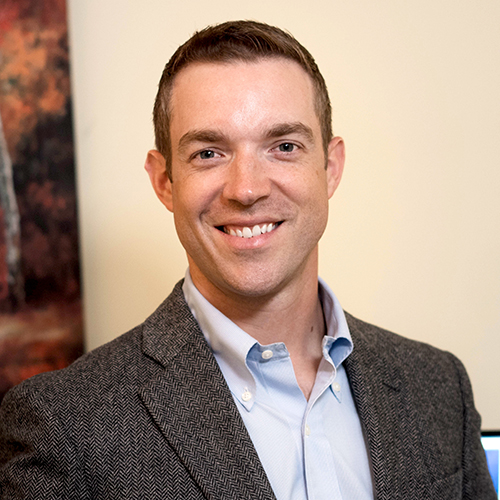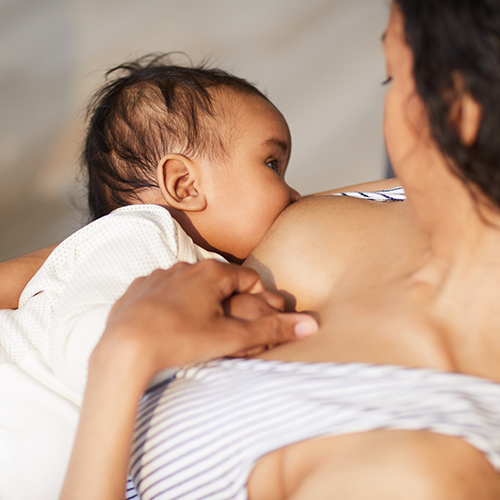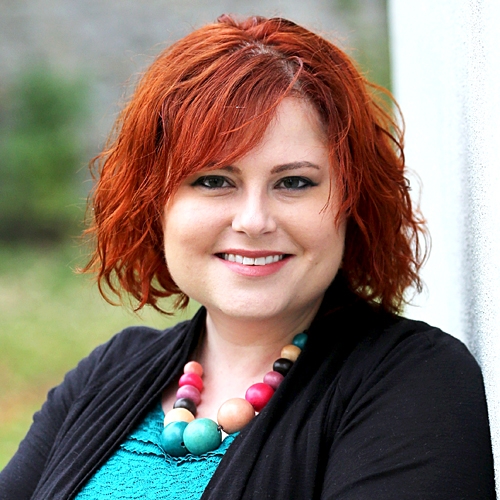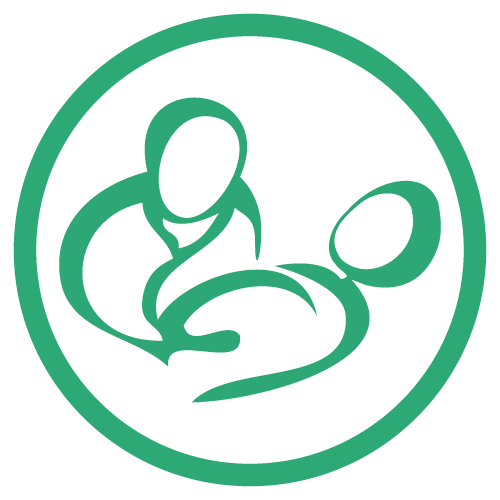 IBCLC Detailed Content Outline: Psychology, Sociology, and Anthropology Focused CERPs - Section V
IBCLC Detailed Content Outline: Psychology, Sociology, and Anthropology Focused CERPs - Section V
Access CERPs on Psychology, Sociology, and Anthropology for the IBCLC Detailed Content Outline recertification requirements. Enjoy convenient on-demand viewing of the latest Psychology, Sociology, and Anthropology focused IBCLC CERPs at your own pace.
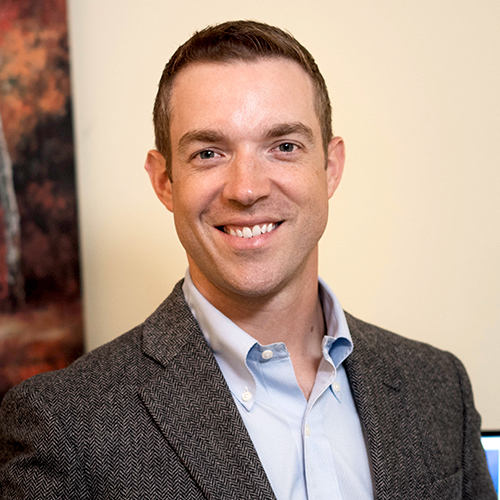

Dr. Andrew Dorough is a native of St. Louis, Missouri. He attended Westminster College in Fulton, Missouri, and graduated with a Bachelor of Science in biology. He then earned his Doctor of Chiropractic Degree from Logan College of Chiropractic in St. Louis, Missouri. He later earned a post-graduate certification from the International Chiropractic Pediatric Association (CACCP). He is qualified to deliver highly skilled and safe treatment to pregnant and postnatal patients and to neonatal and infant patients. Dr. Dorough enjoys providing collaborative care. He currently works in a family medicine clinic which boasts a breastfeeding medicine physician IBCLC, along with other IBCLCs, two nurse practitioners and a physician assistant. He assesses and treats infants with various forms of structural issues, including but not limited to cranial bone deformation (plagiocephaly), torticollis, and tongue and neck dysfunction, as related to feeding difficulties and infant well-being.
Topic: Collaborative Care With a Chiropractor for Infant Feeding Dysfunction - [View Abstract]
The perinatal period along with labor and delivery, is complicated and miraculous. The midwife and chiropractor are in a unique position to honor and assist this miracle and process. This presentation will delve into how midwives and chiropractors can work collaboratively to improve outcomes for clients. Learn about how the Webster technique is specifically designed to prepare the birthing person for an optimal and less stressful experience during their labor and delivery. The attendees will better understand how to find a chiropractor who practices webster technique and how to explain this type of care to the birthing person they are working with.
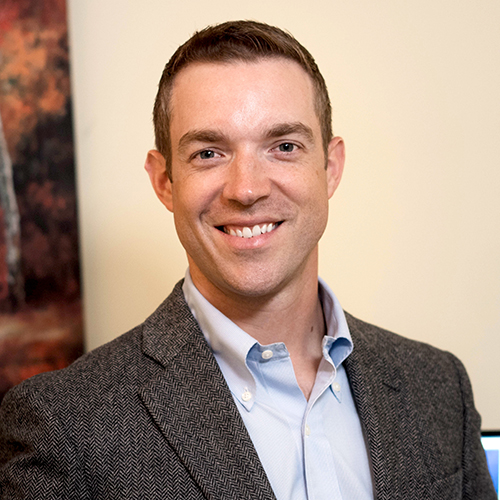
View Details / Enroll
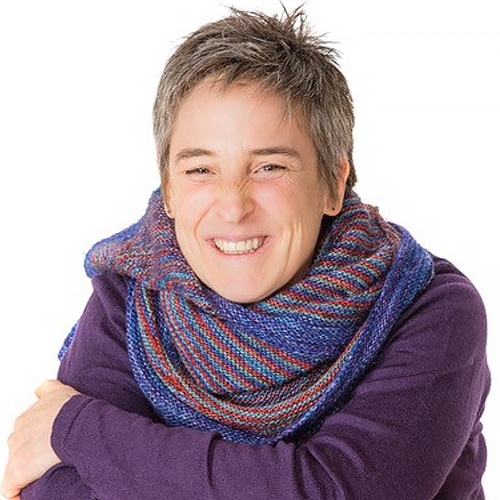
Collaborative Approaches To Educating New Families On Prenatal Sleep Expectations

Erin is a Parent Educator in Ottawa, Canada and the mother of four young adults, including twins. After working in the area of community mental health as a Registered Social Service Worker, she jumped into Prenatal and Parenting education with the Ottawa Childbirth Education Association where she has been designing and providing classes for expectant parents, grandparents, and families expecting multiples for the last 20 years. She divides her time between teaching a class called Bringing Baby home to expectant parents, Normal Infant Sleep classes and working as a Postpartum Doula. In 2018 she returned to school to complete her M.ed for Healthcare Professionals.
Parents experience a lack of formal and informal education on normal newborn sleep patterns. This absence of information through group prenatal classes or perinatal appointments with healthcare providers results in unrealistic expectations of life with their newborn. Coupled with geographic isolation from extended family support systems or extended family members who have different recollections of newborn sleep patterns, parents turn to crowdsourcing information on social media. The prolific advertising of sleep training on social media platforms increases parental fear, leaving parents overwhelmed with the increasingly contradictory information on sleep and strategies for coping.
This presentation will address the situations that lead to unsafe bed sharing and social pressure to sleep train. Participants will have an understanding of the concerns that parents bring to sleep classes for both infants and toddlers. Collaborative strategies for responsive nighttime parenting that respects brain development; attachment theory, nighttime feeds, and balanced with parents need for sleep and self-care will be the focus. Opportunities for education that include online, individual and group opportunities will be offered including a collaborative effort between parents, family, community and healthcare providers.


Dr. Andrew Dorough is a native of St. Louis, Missouri. He attended Westminster College in Fulton, Missouri, and graduated with a Bachelor of Science in biology. He then earned his Doctor of Chiropractic Degree from Logan College of Chiropractic in St. Louis, Missouri. He later earned a post-graduate certification from the International Chiropractic Pediatric Association (CACCP). He is qualified to deliver highly skilled and safe treatment to pregnant and postnatal patients and to neonatal and infant patients. Dr. Dorough enjoys providing collaborative care. He currently works in a family medicine clinic which boasts a breastfeeding medicine physician IBCLC, along with other IBCLCs, two nurse practitioners and a physician assistant. He assesses and treats infants with various forms of structural issues, including but not limited to cranial bone deformation (plagiocephaly), torticollis, and tongue and neck dysfunction, as related to feeding difficulties and infant well-being.
Topic: Collaborative Care With a Chiropractor for Infant Feeding Dysfunction - [View Abstract]
Evidence suggests that trauma during pregnancy, labor and delivery may be a contributing factor to soft tissue and joint restrictions that affect an infant’s inability to latch and effectively transfer milk. How can lactation and medical experts identify the signs of dysfunctional movements that contribute to feeding dysfunction? To what extent can chiropractic care, within a collaborative model, safely and effectively help to correct feeding dysfunction? This session will enable attendees to elicit a more careful history, and to notice often overlooked signs that cannot be resolved with better breastfeeding management, but rather, indicate referral to a pediatric chiropractor.
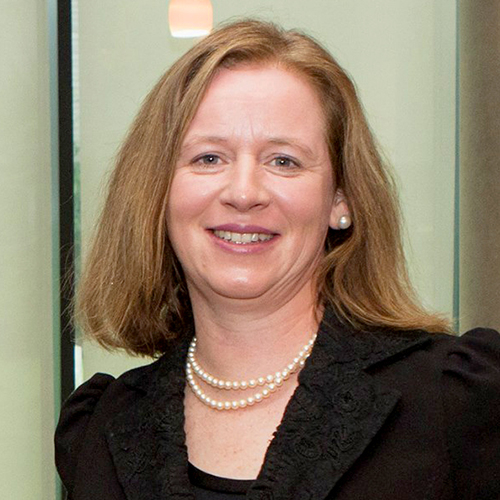

Dr Sylvia Murphy-Tighe is a midwife, public health nurse and Lecturer in Midwifery at the Department of Nursing and Midwifery, University of Limerick, Ireland. Her research interests include vulnerability, maternal and infant health and community engagement. Her doctoral research was funded by the Health Research Board Research (Research Training Fellowship), and defended her PhD in 2017. She developed a grounded typology of concealed pregnancy in order to increase understanding of this phenomenon. She has brought The Spaces Between Us Visual Art Exhibition to Ireland from Australia in order to raise public awareness of concealed pregnancy and the tragic outcomes that can ensue and her research has featured in radio & TV interviews. Dr Murphy-Tighe has many practice-based links to maternity and community-based nursing and NGO services. She is a co- investigator on the PART-IM project (UL) which is a participatory health research projects involving migrants and is currently leading a pilot study of a training programme involving community nurses enquiring about domestic violence and abuse. She is also an active member of @CA18211 Devotion an EU COST Action working on birth related trauma and PTSD. Additionally she is supervising masters and doctoral researchers in the area of perinatal mental health. Dr Murphy-Tighe has several ISI publications https://www.researchgate.net/profile/Sylvia_Murphy_tighe and is a member of the Health Research Institute at the University of Limerick.
Concealed pregnancy is a contested issue and ambiguity relating to definitions has hindered practice/policy developments. This presentation aims to assist participants understanding of concealed pregnancy. A range of terms have been used such as concealed, denied, disavowed, negated, cryptic, rejected and secret pregnancy. Women who experience a concealed pregnancy are sometimes pathologised or demonised, with reductive definitions characterising them. Research and practice surrounding concealed pregnancy predominantly privileges the views of professionals. The literature generally approaches concealed pregnancy from a biomedical perspective with links made to mental illness (Murphy Tighe and Lalor 2016a) yet research into neonaticide found psychopathology was rare. Concealed pregnancy is a fearful and traumatic experience with lifelong consequences which must be fully understood as some women are paralysed and unable to access healthcare if they have experienced early life traumatic/abusive experiences. This presentation draws on research funded by the Health Research Board, Ireland. Data includes interviews with thirty women who experienced a concealed pregnancy, as well data from twenty two cases of public interest drawn from media reports, serious case reviews into infant deaths and interactions with professionals. Contemporary cases will be used and vignettes from women will provide context to the evidence based literature on concealed pregnancy.
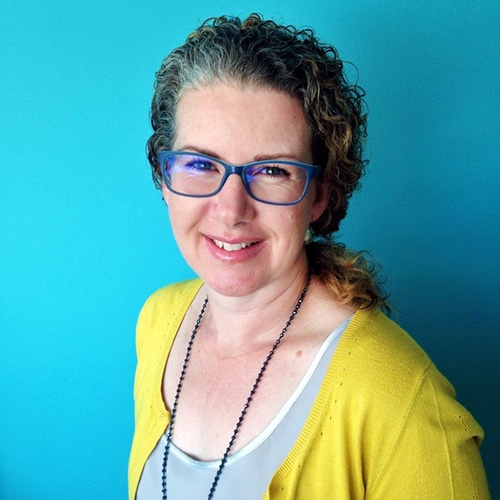
Confident Conversations; Empowering Parents to Make Choices to Prevent their Baby from Sudden Unexpected Death in Infancy

Christine is both a General Practitioner and senior lecturer in the Dept. of Paediatrics at The University of Auckland. She has taken a career long interest in Sudden Unexpected Death in Infancy and is now a doctoral candidate with Prof. Ed Mitchell. She also has a Primary care liaison role at her local district health board and is a clinical editor for primary care web-based Auckland Regional HealthPathways. Her current programme of research involves implementing and evaluating a web-based SUDI risk assessment tool with wrap around care planning for babies at higher risk, in the Counties Manukau Health District Health Board area in Auckland, New Zealand.
Sudden Unexpected Death in Infancy (SUDI) is the sudden death of a baby who was thought to be healthy in the 24 hours prior to death. SUDI remains as a leading cause of post neonatal death in many countries and indigenous and marginalised population groups are the most affected. Experts agree that most SUDI deaths could be prevented, however successful SUDI prevention programmes require system wide, consistent SUDI prevention advice and programmes tailored for higher risk groups.
The Safe Sleep Calculator is a SUDI risk assessment web-based tool that considers 15 SUDI risk factors and provides individualised recommendations on risk reduction. It enables clinicians to provide objective individualised advice for families on infant care behaviours to reduce SUDI risk. The experiences of implementing the Safe Sleep Calculator in a primary care setting and, in a district health board area in New Zealand, will be described.
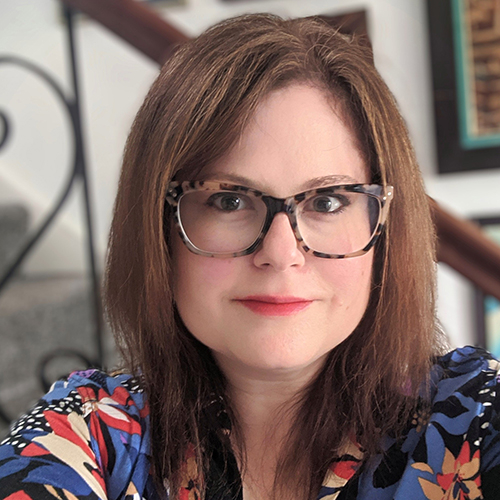

Tamara Drenttel Brand holds an MA in Near Eastern Studies from the University of Arizona and a Master’s in Public Health (MPH) from the American University of Beirut. She spent 10 years in the Middle East, where she worked as a public health practitioner, infant and maternal health consultant and an IBCLC. She has supported breastfeeding dyads from all over the world both in private practice and as a volunteer. In 2011, she founded and still actively facilitates “Mama 2 Mama Beirut Breastfeeding Support,” the largest breastfeeding peer support network in the Middle East (currently at 25k+ members). Additionally, she founded Galactablog, a professional group for lactation specialists and those aspiring-to-be (currently at 4.7k+ members) and has authored several articles for La Leche League’s monthly leader publications in both the Middle East and Ireland.
She is currently an international speaker on the topics dealing with breastfeeding in the Middle East, innovative lactation teaching strategies, working in resource-scarce settings, providing culturally sensitive lactation support, developing and implementing peer counselor training programs, mast cell disease and other related topics. Due to her own chronic health conditions, she has a special interest in educating others about mast cell disease and supporting those with chronic illnesses. She currently resides in a seaside village in Ireland with her family.
Topic: Contextualizing Breastfeeding in Lebanon - [View Abstract]
Topic: Lactation Education Outside the Box: Innovative Teaching Strategies to Engage Your Audience - [View Abstract]
Topic: Mast Cell Diseases and Lactation Care in the Post-Covid Era - [View Abstract]
Topic: Providing Culturally Sensitive Support for Breastfeeding Muslim Families - [View Abstract]
Topic: Reflections on a Breastfeeding Peer Counselor Program in Lebanon: Lessons Learned and Looking Forward - [View Abstract]
In Lebanon, nearly all mothers attempt to initiate breastfeeding. Despite high initiation rates, only 40% of mothers exclusively breastfed through the first month and nationally, a mere 2.4% continued to exclusively breastfeed between 4 and 5 months. Early weaning is a pressing public health concern as infant and under-5 morbidity rates are high. Environmental issues like water quality and sanitation can be problematic when supplemental formula or contaminated water is used. This presentation examines the breastfeeding trends in Lebanon and explores the complex and often overlapping historical, social, cultural, economic and policy determinants behind early weaning. Next, this presentation analyzes newly emerging factors such as the power of social media, collaboration of lactation specialists and the rise of influential mother support networks. The presentation will conclude by highlighting the growing breastfeeding support infrastructure in Lebanon, for the most part, facilitated by breastfeeding mothers themselves.

View Details / Enroll
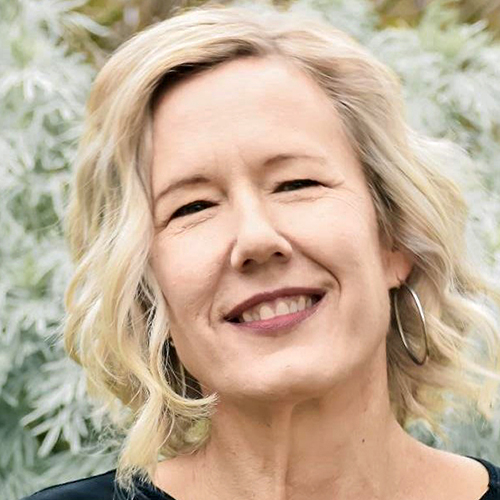

Dr. Gerner has been a Maternity and Pediatric Specialist in private practice for over 17 years with an additional focus on functional infant cranial work. She teaches other professionals to support breastfeeding across the USA and internationally. She is a wife, mother of 3 grown children, and lives in Northern CA with her husband and their 2 rescued dogs.
Topic: Introductions and Establishing the Value of Integration - [View Abstract]
Topic: Nitty Gritty Anatomy: The Cranium, Supporting Structure and the Muscle Layer - [View Abstract]
Topic: Tying It All Together- Consequences of Pathology and Ideal Collaboration - [View Abstract]
Biology often explains it all. Beyond the cranial and Musculo-skeletal system, the cerebral spinal/dural system and the cranial nerves play a huge roll not only in feeding function, but in the overall physical and cognitive health of the child. These systems are reciprocal- the structural system can cause neurological impairment; and likewise, neurological impairment can lead to structural imbalance and weak muscles. Many different therapeutic disciplines acknowledge this relationship in different ways. This presentation focuses on: (1) the cranial nerves specific to breastfeeding function; (2) The dura and CSF (cerebral spinal fluid) systems; (3) clinical presentations: Failure to thrive, colic, KISS/KIDD (4) Studies and articles from various approaches of care; and (5) the consequences of Cesarean Section on CSF and neuropathology.
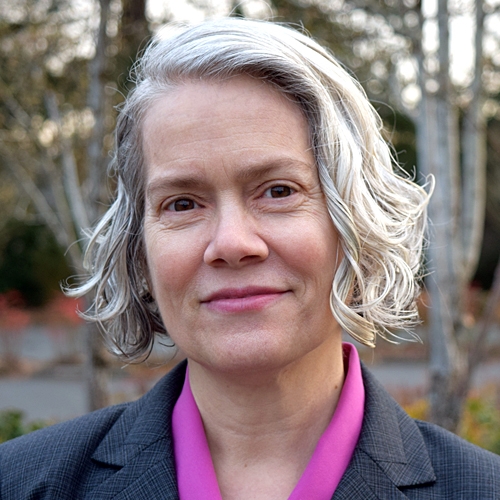
Cultural Competence or Cultural Humility? A Roadmap for Lactation Specialists

Cynthia Good, MS Clinical Psychology, is an International Board Certified Lactation Consultant, Clinical Counselor, author, consultant, and internationally recognized speaker. She is the Director of LifeCircle Consulting, LLC and is Certified in Acute Traumatic Stress Management. She is based in the Seattle, Washington, USA area, where she formerly served as an Adjunct Professor in the Department of Midwifery at Bastyr University where she taught counseling skills and is a therapist at Sandbox Therapy Group where she works with children, adults, and families. Cynthia has a strong interest in the emerging field of lactational psychology. She brings the evidence and insights of psychology and lactation consulting to her presentations, providing information and teaching skills that are essential to understanding and effectively responding to the complex psychosocial realities of families living in diverse contexts. The focus of her presentations includes communication skills and counseling techniques for perinatal care providers; equity, diversity, and inclusion; infant feeding rhetoric; perinatal mental health; perinatal loss, grief, and trauma; ethics; serving as an expert witness in lactation-related court cases; cultural competence and humility; vitamin D; and more.
Topic: Cultural Competence or Cultural Humility? A Roadmap for Lactation Specialists - [View Abstract]
Topic: Heartbroken: Loss and Grief in the Perinatal Time Period - [View Abstract]
Topic: It Wasn’t Supposed to be Like This: Traumatic Birth, Traumatic Stress, and Breastfeeding - [View Abstract]
Topic: My Brain is Doing What? Bias, Ethics, and the Lactation Specialist - [View Abstract]
Topic: Perinatal Mental Health Screening: A Primer for Lactation Specialists - [View Abstract]
Topic: The IBCLC as Expert Witness: Role, Strategies, and Resources - [View Abstract]
Topic: The Rug Pulled Out from Underneath Me: Depression During Pregnancy and After Birth - [View Abstract]
Topic: Unpacking the Invisible Diaper Bag of White Privilege: An Overview of Racial Inequities in Breastfeeding Support - [View Abstract]
Topic: We’re Human, Too: Hidden Dynamics in Our Communication with Clients - [View Abstract]
Culture is an integral part of all encounters with breastfeeding families—whether the lactation specialist’s and the family’s cultural backgrounds are similar or dissimilar. Cultural competence is explicitly or implicitly mandated or recommended in codes of ethics, position statements, and legislation related to a variety of fields, including those that involve the provision of breastfeeding support. For example, IBCLCs are ethically required to provide culturally appropriate care. In spite of the mandate for cultural competence, there is a dearth of information in the field of breastfeeding support regarding its development. This session reviews the ethical call for the development of cultural competence. Five areas of cultural competence—including cultural awareness, knowledge, skill, encounters, and desire—are presented and contrasted with cultural humility. This session also offers 10 “guideposts” for lactation specialists to explore on the non-linear, lifelong, transformative journey of cultural humility.
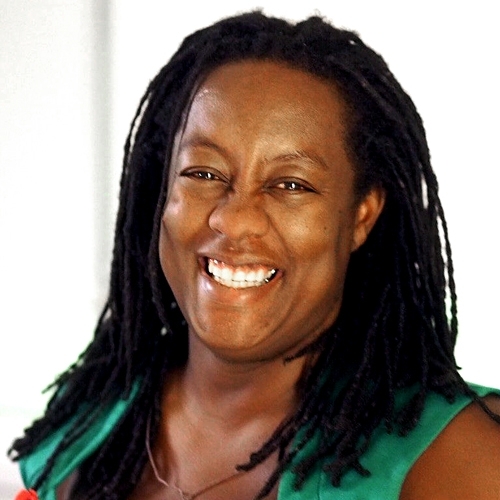

Award winning doula and birth activist Mars Lord has been a birth keeper for well over a decade. After attending the Paramana Doula course with Michel Odent and Lilliana Lammers, a spark was lit within her and the passion that she discovered for birth and supporting parents has fired her soul ever since. She has had the privilege of working with hundreds of families. A birth activist, with a desire to see the ‘colouring in of the landscape of birth’ and finding out the reasons for the maternal and neonatal morbidity rates amongst the BAME community, Mars created Abuela Doulas a doula preparation course primarily, but not exclusively, for women of colour. Her desire for reproductive justice led to the creation of the ‘Reproductive Justice Retreat’. Mars was recently recognised in the Mayor of London's Hidden Credits campaign and continues to speak out for cultural safety and reproductive justice.
Topic: The Importance of Black Birthkeepers - [View Abstract]
There is an urgent need for all health care providers to be well versed in cultural humility and cultural safety during pregnancy and birth. This presentation will explore these concepts in the context of providing labour support, and provide a detailed look at what cultural humility is, why we should practice it and the consequences when we don’t, along with practical information about how to practice cultural humility and the beautiful changes that happen when we approach labour support with an open mind and heart and the intention to be aware of our own biases in order to provide culturally safe care.
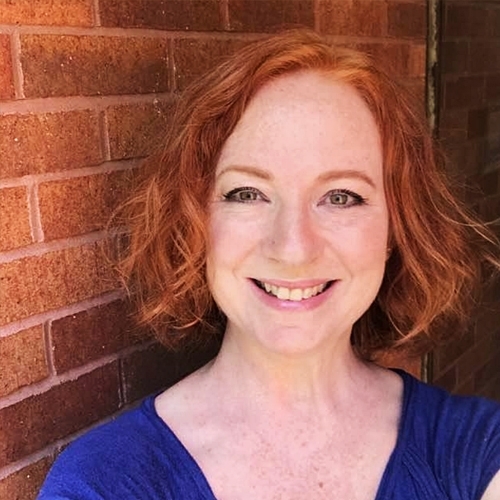
DANCING FOR BIRTH™ — A Powerful, Evidence-Based Birth Method to Improve Birth Satisfaction

Stephanie Larson is the visionary creator and founder of Dancing For Birth™―the powerful class which combines prenatal/postnatal fitness, childbirth education, and sacred celebration and has become a global sensation as the ‘trifecta’ of birth preparation. Over 20 years ago Stephanie instinctively ‘danced-out’ her first child in an empowering and euphoric four-hour birth. Upon hearing her peers’ stories of their traumatic births, she felt called to change the status-quo and bring a radically different birth method to parents and the professionals that serve them. Now, Certified Dancing For Birth™ Instructors on four continents educate and mentor parents on an ongoing weekly basis from pre-conception through postpartum (including baby). With each dancing labor, and the resulting connection to body, baby and bliss, birth is being transformed from fear, pain and trauma to power and pleasure.
A world-renowned expert on utilizing movement, instinct and gravity to support easier birth, Stephanie’s appearances include LAMAZE, ICAN, DONA, CAPPA, CIMS, ICEA, AWHONN, CBS, NBC, Fox and ABC. She was voted USA’s National Birth Hero by the birth community (One World Birth Award). Stephanie is the executive producer of the DVD “Prenatal Dance and Birth Wisdom.” She’s a mom of four who calls for an end to forced lithotomy position and a global shift to primal, powerful, euphoric birth and conscious parenting. Reach Stephanie at [email protected]
Birth satisfaction is an important measure of the quality of perinatal care and is pivotal in creating a positive birth and postpartum experience. How can we maximize it? Dancing For Birth™ is a perinatal class for parents and a birth method created to diminish labor pain, increase birth satisfaction and empower the birthing family. It is also an advanced training for perinatal professionals, providing the philosophy and practical skills necessary to support this mode of birth, including original techniques based on Dancing For Birth’s principles of movement, gravity and instinct. The ‘new sensation’ we’re now witnessing of birth dance going global and labor dance videos going viral has been 20 years in the making. Far from a trend, it’s indicative of the future of birth, in which freedom of movement and birth position of choice are paramount. In this interactive session with founder, Stephanie Larson, we’ll be introduced to Dancing For Birth™, its origin and efficacy. We’ll practice moves that encourage fetal rotation and descent while naturally increasing comfort. We will address the evidence regarding dancing during labor, and we'll explore the factors that make dance so transformative for birth.





